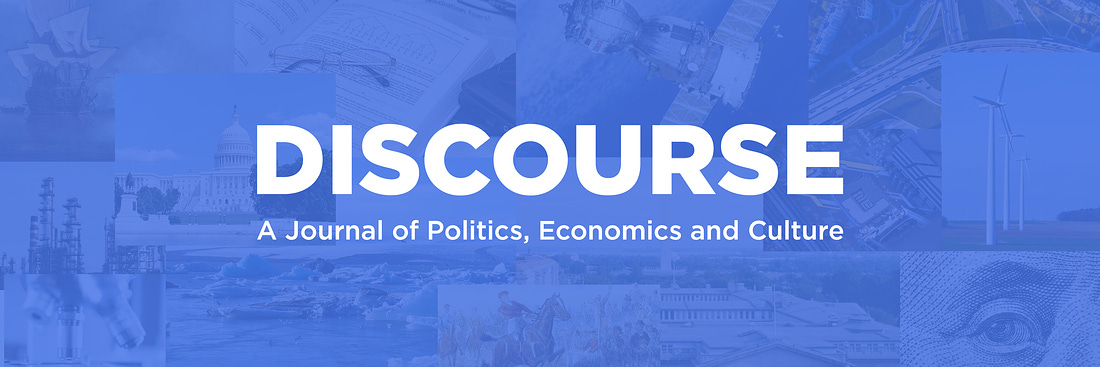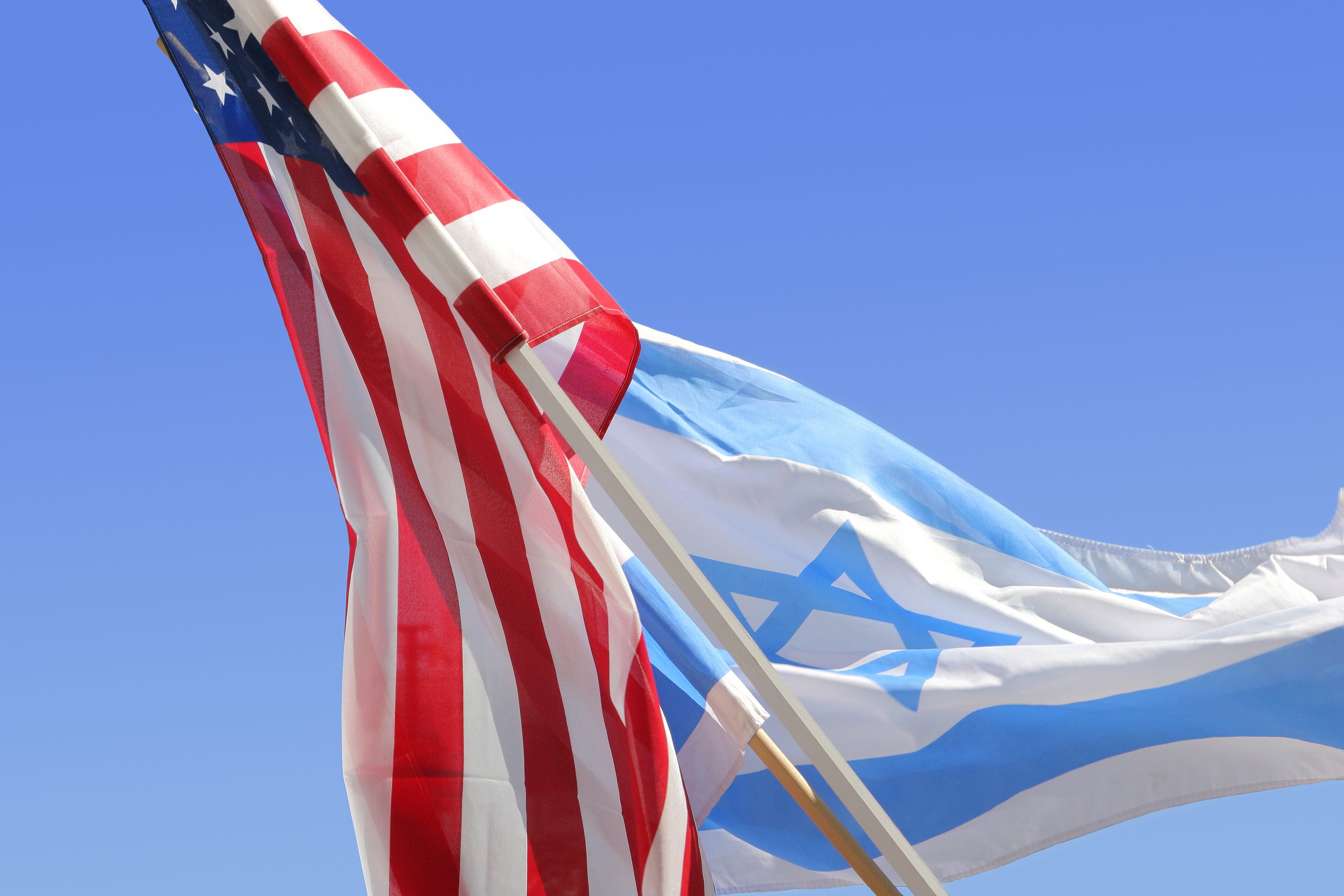|
 |
A Critical Look at AIPAC’s Political Clout
The pro-Israel interest group shows how outside entities can decisively change the course of policymaking
In late June, Rep. Jamaal Bowman, a recent addition to the “Squad,” a progressive, left-leaning group whose members are part of the House Democratic Caucus, was defeated in the Democratic primary for New York’s 16th congressional district. While it is common for incumbents to face challenges, Bowman found himself in the most expensive primary battle in the history of House elections. Bowman’s outspoken criticism of Israel’s military actions in Gaza drove massive amounts of outside funding: Out of the $24.8 million spent on the race, nearly $15 million came from the American Israel Public Affairs Committee (AIPAC) to actively work against his candidacy.
Bowman is part of a small yet growing faction within Congress that is raising questions about the United States’ steadfast support for Israel, and clearly, his dissenting stance has made him a political target of a prominent and powerful group. A formidable lobbying organization known for advocating strong U.S.-Israel relations, AIPAC’s significant influence stems from its capacity to rally support and financial backing for political candidates who share its perspectives on matters concerning Israel. AIPAC’s success in defeating Bowman is the latest reminder of how outside groups with large financial coffers have the power to change the course of politics.
Of course, AIPAC is not the sole major player in the lobbying arena. Other powerful groups, such as the National Rifle Association (NRA), also wield considerable influence over American politics. Well known for its robust lobbying efforts to protect gun rights, the NRA often succeeds in swaying legislation and public policy in its favor. This year alone, for instance, the NRA has spent over half a million dollars on lobbying to influence legislation and regulations related to gun rights and firearms policy. The NRA’s influence extends beyond direct contributions and lobbying. The organization engages in significant independent expenditures, funding ads and other initiatives to support or oppose specific candidates without directly coordinating with their campaigns. This type of spending has been crucial to the NRA’s strategy of influencing political outcomes and promoting its agenda.
Similarly, pharmaceutical companies, the fossil fuel industry and tech giants like Google and Meta exert tremendous pressure on lawmakers to ensure their interests are protected. Each of these groups leverages substantial financial resources and strategic alliances to shape policies that advance their agendas. For example, Google—or more specifically, Alphabet, its parent company—ranks 41 out of 27,872 of the largest donors to political campaigns. Alphabet’s contributions to congressional and federal candidates predominantly favor Democrats.
Yet, despite this crowded field, AIPAC stands out due to its unparalleled ability to shape U.S. foreign policy. Its strategic mobilization and substantial financial contributions position it as one of the most, if not the most, influential lobbying entities in the United States today.
Becoming a Behemoth
AIPAC was founded in 1951 by Isaiah L. Kenen, a former journalist and pro-Israel activist. Its origins trace back to the American Zionist Council, which played a crucial role in lobbying for the establishment of Israel in 1948. Over the decades, AIPAC has evolved into a powerhouse of political advocacy, strategically mobilizing its resources to shape U.S. policy in favor of Israel. Initially, the group focused on grassroots mobilization and lobbying Congress, but its tactics have expanded to include substantial financial contributions to political campaigns, making it a central player in American politics.
As American politics have become more polarized, it has become more challenging to sway sitting members of Congress through traditional lobbying efforts alone. In a highly competitive and divided political environment, securing support from incumbents can be difficult, particularly if they face pressure from their party bases or influential constituents with opposing views. The role of money in American politics has increased significantly, particularly following the Citizens United v. FEC (2010) Supreme Court decision, which allowed for unlimited independent political expenditures by corporations and unions. This decision, along with other changes in campaign finance laws, has made financial contributions a more decisive factor in election outcomes. Essentially, by supporting candidates financially from the outset, AIPAC can help ensure that pro-Israel candidates are elected in the first place. This preemptive strategy can be more effective than trying to change the minds of already-elected officials who may have established positions or face conflicting pressures.
Tactical Evolution
For much of its history, AIPAC has refrained from giving money directly to political candidates. Instead, it has focused on lobbying and organizing its members to support pro-Israel policies and candidates indirectly. AIPAC aimed to maintain a broad, bipartisan appeal, focusing on educating and influencing sitting members of Congress through lobbying efforts and grassroots mobilization. This approach changed in recent years, however, reflecting a more direct engagement in electoral politics. To be more specific, AIPAC initially focused on indirect support, encouraging its members to donate to pro-Israel candidates through political action committees (PACs) and other means. This strategy allowed AIPAC to maintain a degree of separation from direct financial contributions, focusing instead on mobilizing its extensive network of supporters. But this changed in 2020, when AIPAC launched its own super PAC, the United Democracy Project, which allows for more direct and substantial financial contributions to candidates who align with its goals.
Additionally, AIPAC has fostered a particularly intense relationship with the Evangelicals for Israel community, leveraging their support to bolster its advocacy efforts. This alliance has amplified AIPAC’s influence, aligning it with a significant and politically active segment of the American population. AIPAC and various evangelical organizations regularly collaborate on events and conferences. These gatherings serve to inform and mobilize their members, providing a platform to discuss pro-Israel policies, share strategies, and build a cohesive and united front in support of Israel. The partnership extends to legislative advocacy, where evangelical groups and AIPAC work together to lobby Congress.
Today, AIPAC’s financial influence is substantial. The organization spends millions of dollars each election cycle to support candidates who align with its pro-Israel agenda. In 2022, for instance, AIPAC spent over $17 million on contributions and lobbying efforts. This funding spans both major political parties, in an effort to shore up bipartisan support for its favored policies, including significant military aid to Israel, ensuring it maintains a military edge in the region. AIPAC advocates for robust economic cooperation between the U.S. and Israel, including support for free trade agreements and collaborative research initiatives.
As OpenSecrets reported, celebrating the House’s passage of the National Defense Authorization Act, Representatives David P. Joyce (R-Ohio) and Joe Wilson (R-S.C.) highlighted a $50 million increase to the initial $75 million funding request for joint research and development between the U.S. and Israel. The House version of the National Defense Authorization Act for 2024 also includes $300 million for the U.S.-Israeli cooperative missile program. Additionally, Sen. Bob Menendez (D-N.J.), recently indicted on charges of acting as an unregistered foreign agent for Egypt, was the top recipient of AIPAC contributions in 2023, receiving more than $1.1 million over the past year or so.
AIPAC’s tactics extend beyond supporting allies to targeting opponents. Representative Thomas Massie (R-Ky.) has been vocal about his experiences with AIPAC’s aggressive tactics. During a recent interview with Tucker Carlson, Massie claimed that many Republicans have an “AIPAC person” or “babysitter”—an individual tasked with ensuring alignment with AIPAC’s agenda. Massie told me separately that “almost no one, including AIPAC, has refuted the statements about AIPAC that I made on Tucker Carlson’s show. In fact, since the show aired, several members [of Congress] have shared their personal stories of strong-arm tactics from AIPAC, while a few members have proudly told me they don’t have an ‘AIPAC person.’”
Massie further emphasized the difference these tactics can make, stating, “AIPAC is known in Washington, D.C., for pressure campaigns against those who do not reflexively support their political and legislative agenda. They brag about their influence, recently posting on X that they are the ‘top fundraiser for Democrats and for Progressive Caucus members.’” “Organizations that engage in extensive and expensive political lobbying,” he added, “should expect the positions they take to be subjected to legitimate scrutiny and public criticism.” This insight highlights a broader concern about the extent of AIPAC’s influence on American politics: Massie’s comments underscore the need for greater transparency and accountability in the lobbying process.
Expanding on this point, cultural historian Walter Hixson, author of “Israel’s Armor: The Israel Lobby and the First Generation of the Palestine Conflict,” underscores the pervasive influence of AIPAC. Hixson told me that “it is not only AIPAC but literally hundreds of pro-Israel pressure groups.” However, “AIPAC is beyond question the most powerful lobby representing the interests of a foreign country today and one of the most powerful lobbies, period.”
A good chunk of AIPAC’s funding, Hixon explains, comes from a handful of billionaires. This is a very important point. AIPAC’s financial backing suggests that these billionaires could potentially shape policies in ways that align with their own interests, possibly at the expense of broader public interests or viewpoints. In a democratic system, the ideal is that policies reflect the will and interests of the broader populace, not a select few.
Evidence supporting Hixson’s claim about billionaire funding includes the involvement of figures like the now-deceased Sheldon Adelson, a billionaire who had been a significant contributor to pro-Israel causes, including AIPAC. Similarly, hedge fund manager Paul Singer is known for his substantial contributions to AIPAC and other pro-Israel causes. Media mogul Haim Saban has also been a major donor to AIPAC and other pro-Israel organizations, contributing millions to strengthen U.S.-Israel relations. Other notable contributors include Bernard Marcus, co-founder of Home Depot, and Ronald Lauder, Estée Lauder heir, both of whom have supported AIPAC extensively.
While AIPAC’s support helps ensure pro-Israel policies, its aggressive tactics and pressure campaigns raise important ethical questions about the role of lobbying in a democratic society. Criticizing AIPAC is not an act of antisemitism; it is a necessary part of holding powerful organizations accountable and ensuring that elected officials can represent their constituents without undue influence. It is essential to distinguish between valid criticism of a lobbying group and antisemitism. It’s justifiable to be able to criticize AIPAC based on its influence on U.S. politics, its methods and the implications of its lobbying efforts. This is not an attack on the Jewish people or the state of Israel; it's not the content of AIPAC’s beliefs that makes it problematic, but rather its methods. Holding a powerful organization like AIPAC accountable for its actions is a crucial aspect of democratic governance. Such scrutiny ensures that lobbying efforts do not undermine the democratic principles upon which the United States is built.
You’re currently a free subscriber to Discourse .

